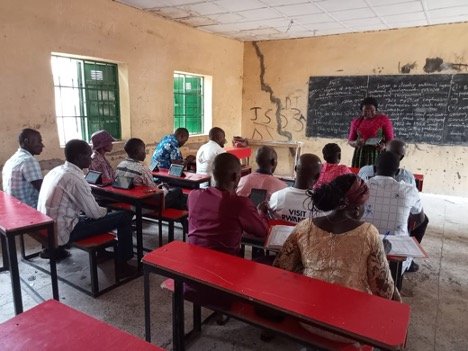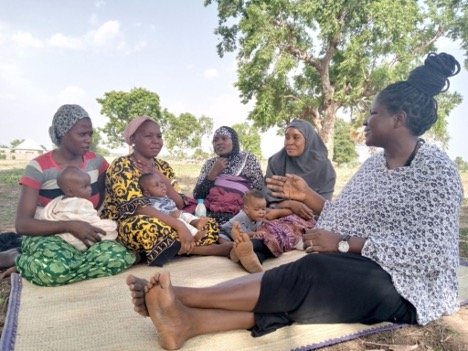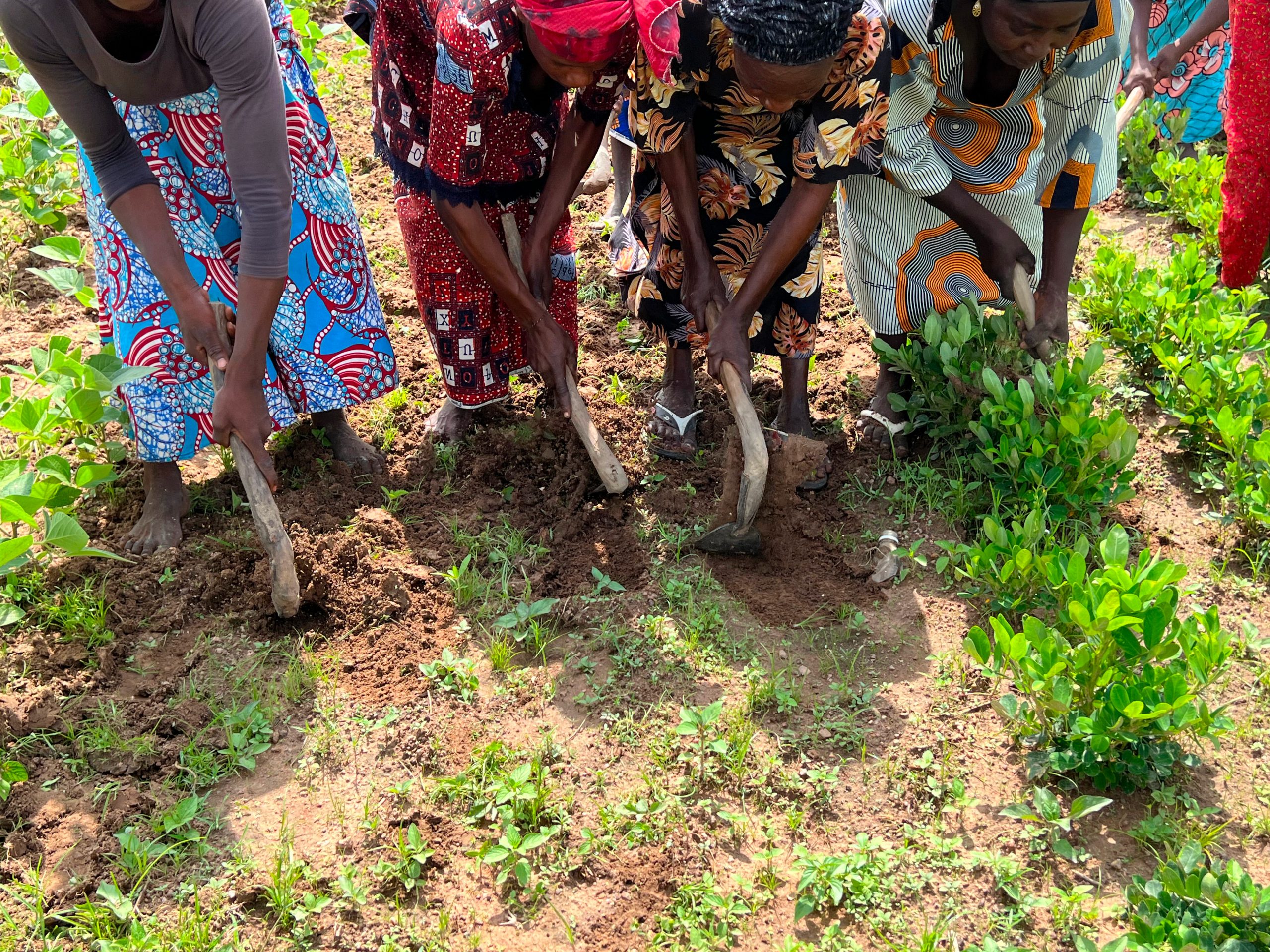On this International Women’s Day, the Nuru Collective is honored to join with people across our global community to #EmbraceEquity.
The Nuru Collective is proud to take this moment to celebrate its women leaders whose expertise and insights have paved the way for meaningful choices for vulnerable families and their communities. One of these women leaders is Bless, Nuru Nigeria’s Monitoring and Evaluation Officer.
Bless – Driving Impact at Nuru Nigeria
In 2018, Bless joined Nuru Nigeria, and in her role, she provides technical oversight and support to Nuru Nigeria’s monitoring systems. Bless is a vital part of the Nuru Nigeria team, ensuring that the organization’s programming is both delivering impact and adapting with lessons learned to provide timely support to farmers. Operating in northeast Nigeria–a fragile region formerly under Boko Haram control–presents its challenges. Yet Bless has successfully ensured proper data collection and database maintenance to drive the organization forward and equip it for scaling. Bless says that “Nuru Nigeria is doing a great job building the resilience of rural farmers through agribusiness mastery,” and she enjoys “being an agent that contributes to this great impact and positive story.”

Bless leads research assistant training for organizational capacity assessment in northeast Nigeria
Women’s Economic Empowerment Survey Launch at Nuru Nigeria
In the fall, after months of careful planning supported by Ian Schwenke, Nuru International’s Monitoring, Evaluation, and Learning Senior Associate, Bless launched Nuru’s first women’s economic empowerment (WEE) survey. Women’s economic empowerment is the process of enabling women to participate fully in the economic life of their communities and societies, and to benefit from the resulting opportunities and resources.
The WEE survey takes a careful look at the power dynamics at play within the households Nuru is serving in northeast Nigeria, with the goal of determining if women are gaining access to household income and decision-making over time. This initial survey provides a baseline of understanding for Nuru, showing the degree of inequality that women are facing in northeast Nigeria, and it allows Nuru to provide targeted monitoring and evaluation of its programming with the intention of seeing those inequalities decrease over time.

Bless having a knowledge assessment with a group of women following a cooking demonstration session in northeast Nigeria
Measuring women’s economic empowerment is important because it can help to identify and address gender-based inequalities and discrimination. By better understanding those barriers that women are facing, Nuru can better design its interventions to promote gender equality and women’s empowerment. The ripple effect of investing in women is difficult to overstate.
The Value of Women’s Empowerment
When women have equal access to resources and decision-making, agricultural productivity can improve, which means the risk of food insecurity decreases. Additionally, when women have access to their household income, they are more likely to invest in the well-being of their families, including food, education, and healthcare. They are also more likely to invest in their communities. Bless notes that “the WEE survey provides evidence of disproportionate decision-making power and responsibilities amongst men and women in the communities we intervene in.” Identifying these gaps in agency and decision-making will equip Nuru Nigeria to reflect on the impact that programs are having at the household level and target changes over time.
Please take a few minutes to hear directly from Ian and Bless as they take a look at what this means for Nuru and the women Nuru is serving.
Bless says, “As a woman, it gives me great pleasure to see fellow women excel in all areas that can improve their lives and that of their households without facing limitations due to cultural or social barriers.” She goes on to add that her “hope is for the women of northeast Nigeria to be able to boldly take a stand, make their voice heard and be able to also take part in decision making in the communities and households whose growth they contribute to.”
As Bless and Ian noted, this survey is part of Nuru’s latest effort to build the capacity of women. Click here to learn more about Nuru’s gender mainstreaming approach, including our women-first approach to registering farmers. Want to hear more from women leaders at Nuru? Click here.


